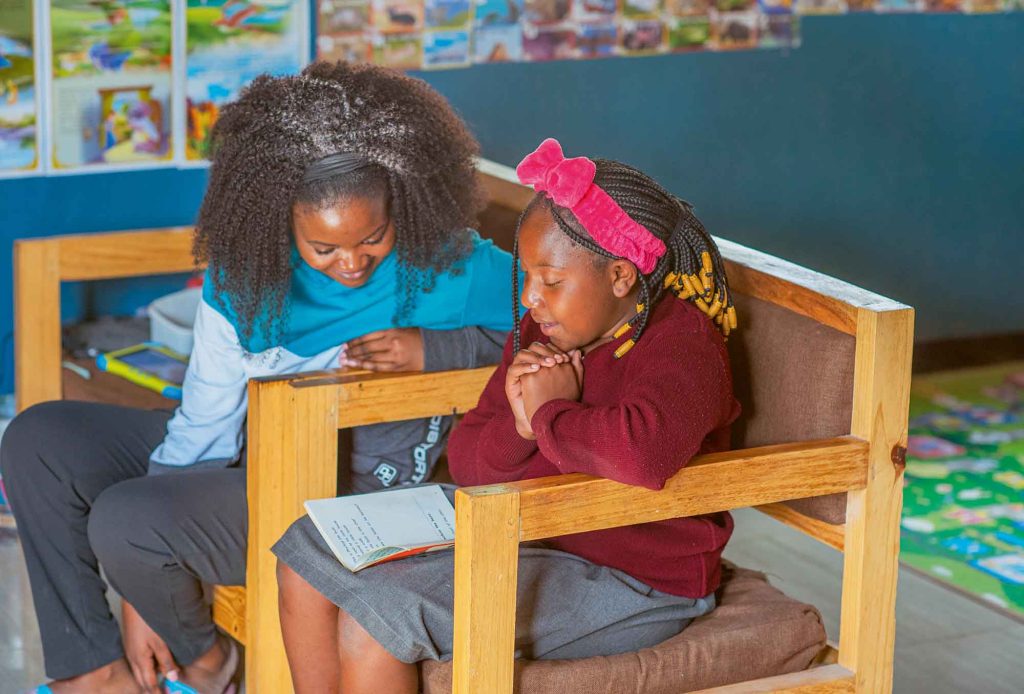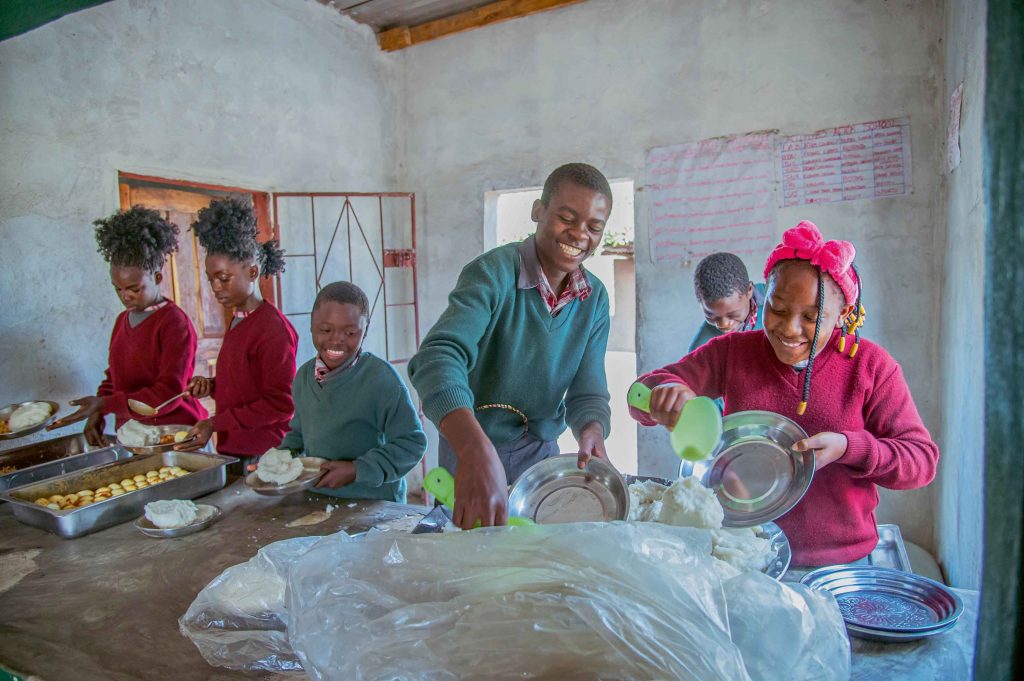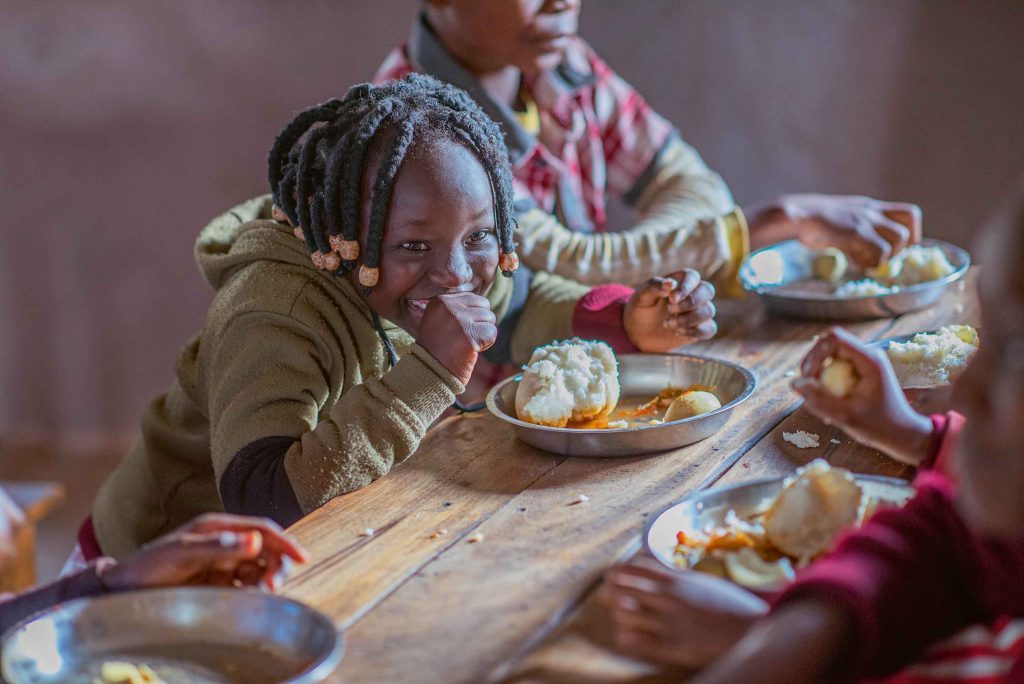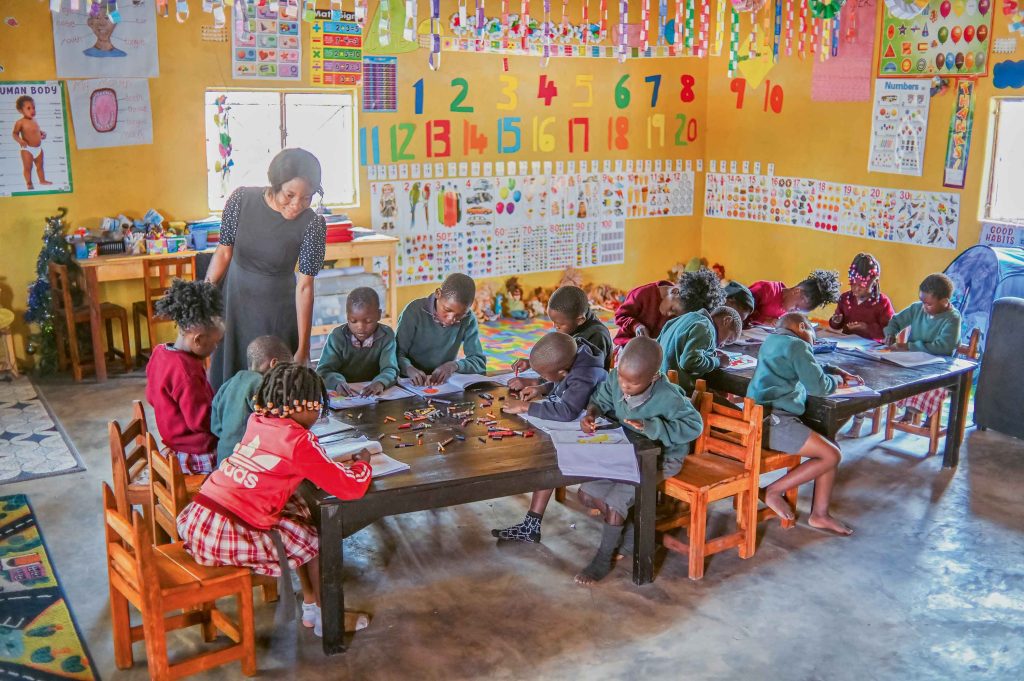Walking in Hope:
The Dora Moono Nyambe Legacy
My story begins on a bus ride from a city called Kapiri to a village… after being invited by my friend… who wanted to visit her parents in a remote village called Mapapa in Mkushi, Zambia.
The first thing she did as we got on the bus was give me a headwrap. I was very confused as to why I needed it, but I took it anyway and wrapped it around my head. Thirty minutes into the bus ride, I found out that the road was very uneven. It had potholes, protruding stones, and fallen trees that made driving very difficult. Dust would emerge from the bottom of the bus, causing everyone to look like they had just survived a sandstorm. Our bus sat 15 people, but the conductor kept adding more along the way. It reminded me of the saying: ‘How many people can fit in a Zambian bus?’ The answer is one more.
— Excerpt from Life with Dora, by Dora Moono Nyambe
The dirt road to Mapapa Village snakes 65 kilometres from the nearest highway, cutting through Zambia’s Luano District like a forgotten path to nowhere. In this place, where power lines don’t reach and modern comforts don’t exist, a young woman showed up with just a teaching certificate and a crazy dream.
This is where Dora Moono Nyambe decided to make her stand.

If you’ve scrolled through TikTok lately, you probably know Dora from her contagious energy that somehow jumped right through your screen. She had this way of radiating pure joy despite standing in the most basic surroundings. Sure, her goofy dance moves and honest talks drew people in, but that was just the tip of something much bigger: a burning passion for helping vulnerable kids that ended up transforming hundreds of lives.
I don’t usually fall for social media stars, but the flood of grief somehow made it into my feed anyway. I guess I’m not alone in sadly discovering her incredible work only after she died at just 32, leaving me wondering how someone I never actually met could leave such a hole in my heart.
Dora’s first classroom was under a tree. When the rains came, she had to consider pausing classes, and her students risked missing both lessons and meals.
“Who was Dora?” I kept asking myself, “And why should we care about her story?”
It starts on the edges of the Chibombo District, where Dora grew up facing her own struggles. Even then, something special was brewing inside her. By 22, she’d already adopted her first child — an early sign of the road she’d take. Twelve more adoptions followed, each showing a conviction that couldn’t be faked.

From early on, Dora showed this genuine love for nurturing young minds. Believing deep down she could make a difference, she decided to become a teacher. After finishing at Immaculata Teaching College in Kabwe, Dora planned to process her visa and start fresh abroad with her kids. Instead, visiting Mapapa Village with a friend completely changed her course. Seeing children with no access to school, unable to read or write, trapped in abusive situations, she didn’t just feel bad. She took action.
Her first classroom? The shade under a big tree. Her students wrote in the dirt and counted with sticks and stones. Her resources? Whatever savings she had, help from close family friends, and anything she could scrounge up for free. Her home? A mud hut without electricity that served as a classroom by day and a living space by night.
This wasn’t your typical charity work. This was full immersion: a deliberate choice to live right alongside those she wanted to help, making their challenges her own.
What drove such dedication? Dora often talked about kindness she’d received in her childhood from missionaries, especially Timothy Keller and his family. Their generosity created a ripple that Dora turned into a wave, showing how one compassionate act can echo across generations.

Dora’s first classroom was under a tree. When the rains came, she had to consider pausing classes, and her students risked missing both lessons and meals.
Her work faced major hurdles. In rural Zambia, like many parts of Africa, child marriages aren’t just traditions. They’re economic survival tactics. Desperate families sometimes view early marriages as solutions to poverty, with bride prices providing immediate financial relief. Add dangerous myths, like the belief that sex with virgins can cure HIV/AIDS, and the challenge becomes even more overwhelming.
Dora tackled these deep-rooted practices by offering alternatives. She knew that education alone wasn’t enough. These kids needed everything: shelter, food, healthcare, and most importantly, a sense that better things were possible.
Just as her mission grew beyond what one person could fund, Dora discovered TikTok through one of her daughters. They made dance videos together at first, but feeling a strong need to be authentic, Dora started sharing her daily village life: feeding children and rescuing girls from abuse and forced marriages. Her authenticity, not polished content, connected with viewers worldwide. Soon, four million followers were watching daily life in Mapapa, and many became invested in its transformation. Her first GoFundMe campaign helped install four water pumps for the village and two for the school. Crowdfunding later enabled her to build classrooms and safe houses for girls rescued from abuse.
By 2020, what began under that tree had evolved into Footprints of Hope, a boarding school created as a haven for vulnerable children. Through crowdfunding partnerships, including Beast Philanthropy (founded by YouTube creator Mr Beast), Dora secured funding for wells, safe houses, a clinic, playgrounds, and resources to feed, clothe, house, educate, provide healthcare and rescue child brides.
The numbers tell part of it: 500 children fostered or adopted, thousands more educated, an entire community lifted up. But statistics can’t capture the fundamental shift in expectations. Dora’s presence in Mapapa redefined what seemed possible.
When news of her death spread, people immediately asked: “What happens now?” The answer lies in the strength of what she built. Today, Dora’s team at Footprints of Hope, her family, co-founder Ronald Sinkala, and the Ministry of Community Development continue to advance her vision. The recent formation of a board of directors should improve operations at Footprints of Hope as well. Donors have promised ongoing support, including teachers and a school bus. This is proof that the seeds Dora planted will keep growing.
There’s something distinctly Zambian about Dora’s story. It embodies the ubuntu philosophy that recognises our shared humanity. Yet it crosses all borders, speaking to universal truths about purpose and potential.
In October 2019, Dora decided to move to Mapapa with her 12 children, foregoing her visa to start a new life abroad with her family.
If her story moves you, consider becoming part of its continuation. Support Footprints of Hope through donations, child sponsorship, or simply by sharing Dora’s story. Every contribution extends the ripple effect she started, the same philosophy that guided her remarkable life.
In a world that often measures success by what we own, Dora offers a different yardstick: the lives we touch, the possibilities we create, and the hope we leave behind. By that measure, her 32 years were incredibly rich. So don’t wait. Chase your purpose today.
And that’s why her story matters to all of us.

Support Dora’s Legacy
Dora Moono Nyambe’s work continues through Footprints of Hope. The children she dedicated her life to still need education, shelter, and care. To support this vital mission and help ensure Dora’s vision lives on, kindly contact Ronald Sinkala (+2609778786890) or Natasha Barr (+27824682865). Or you can email info@fohz.org or [email protected] or follow @doramoono on TikTok for donation information. Every contribution helps maintain the ripple effect that Dora started in Mapapa Village.
As GoFundMe is not available in Zambia, Dora had to rely on friends and family abroad to open accounts on her behalf, allowing her to crowdfund her organisation.



